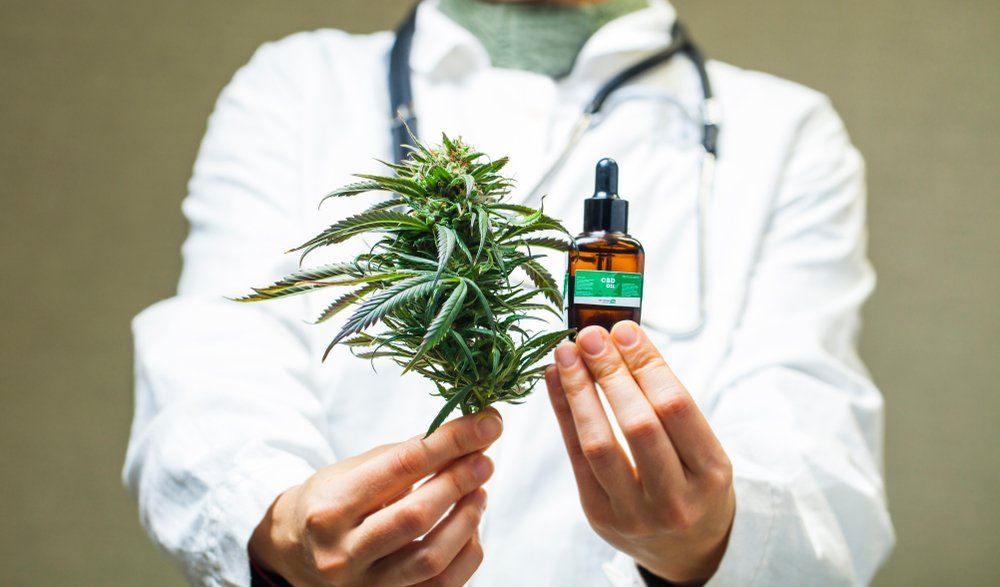Is Drug Possession a Felony in Texas?
Written by Law Office of Rolando Cantú, reviewed by Rolando Cantú
Is Drug Possession a Felony in Texas?
In the state of Texas, drug possession is considered a felony. The consequences for such a crime can be severe, and may include jail time and high fines. If you are facing drug possession charges, it is important to understand the law and what your options are. An experienced criminal defense attorney can help you navigate the legal system and protect your rights.
- What is a drug possession felony?
- Possible penalties for drug possession in Texas
- Drug penalty groups in Texas
- Drug possession laws and criminal charges
- Other penalty groups
- Other criminal charges
- Mandatory Minimum Sentences
- Other penalties for drug possession
- Get a Federal Criminal Defense Lawyer for the legal process
What is a drug possession felony?
In Texas, it is illegal to possess any amount of a illegal substance. Possession of a substance of this kind is a felony offense in Texas. A controlled substance is defined as a drug or compound that is regulated by state or federal law. Drugs that fall under this category include marijuana, cocaine, heroin, Ecstasy, and methamphetamine, among others.
The penalties for drug possession depend on the type and amount of drug involved. Possession of a small amount of drugs may be charged as a misdemeanor, while possession of a large amount may be charged as a felony.
You might want to read:
Federal Drug Charges - The Facts You Need to Know
Possible penalties for drug possession in Texas
The penalties for drug possession in Texas can be severe. Those convicted of drug possession may face jail time, probation, and fines. As we mentioned before, specific penalties depend on the type and amount of drug involved, as well as the offender’s criminal history. Possession of a small amount of drugs may be charged as a misdemeanor, while possession of a large amount may be charged as a felony.
In general, first-time offenders will face lesser penalties than those with prior convictions. However, even first-time offenders may be subject to jail time, probation, and mandatory drug counseling or treatment programs.
Drug penalty groups in Texas
In Texas, drugs are divided into penalty groups. The penalties for each group vary depending on the type of drug and the amount possessed. In Texas, this kind of substances are regulated under the The Texas Controlled Substances Act, which is located in the Texas Health and Safety Code. The code is divided into 4 penalty groups and 2 subgroups. The different penalty groups are as follows:
- Penalty Group 1
- Penalty Group 1-A
- Penalty Group 2
- Penalty Group 2-A
- Penalty Group 3
- Penalty Group 4
Penalty Group 1
The penalties for this group are the most severe. This group includes opioids and opium derivatives. Drugs in this category include drugs like codeine, hydrocodone, and oxycodone. Also, methamphetamine, hallucinogens, ketamine, mescaline, among others get into this group.
The penalties for possession of a substance in Penalty Group 1 depend on the amount of drug possessed. For example, possession of less than one gram is a state jail felony, punishable by 180 days to 2 years in jail and a fine of up to $10,000.
Possession of one gram or more, but less than four grams, is a felony of third-degree, punishable by 2 to 10 years in prison and a fine of up to $10,000.
Larger amounts carry increasingly harsh penalties, up to a first-degree felony with a sentence of 5 to 99 years in prison and a fine of up to $100,000.

Penalty Group 1-A
This group is similar to Penalty Group 1, but the drugs in this group are considered to be more dangerous. This group includes the previous drugs mentioned, but also LSD and derivatives. The penalties for possession of a substance in Penalty Group 1-A are the same as those for Penalty Group 1, but in case of larger amounts, the offender may be charged with a $250,000 fine.
Penalty Group 2
This group includes drugs that are not as dangerous as those in Penalty Group 1 or 1-A, but are still considered to be harmful. This group includes drugs like peyote, PCP and Ecstasy.
The penalties for having a substance in Penalty Group 2, as in Group 1, depend on the amount of drug possessed.
For example, possession of less than one gram is a state jail felony, punishable by 180 days to 2 years in jail and a fine of up to $10,000.
Possession of one gram or more, but less than four grams, is a third-degree felony, punishable by 2 to 10 years in prison and a fine of up to $10,000.
Possession of larger amounts carry increasingly harsh penalties, up to a first-degree felony with a sentence of 5 to 99 years in prison and a fine of up to $50,000.
Penalty Group 2-A
This group is similar to Penalty Group 2, but the drugs in this group are considered to be more dangerous. This class of drugs includes those that act similarly to cannabinoids and these include drugs like synthetic marijuana and hashish oil.
The penalties for possession of a substance in Penalty Group 2-A are actually less severe than those for Penalty Group 2, being considered a misdemeanor for small amounts.
For possession of one gram but less than four grams, the penalty is a Class A misdemeanor, punishable by up to one year in jail and a fine of up to $4,000.
A class B misdemeanor is punishable by up to 180 days in jail and a fine of up to $2,000, and applies for less than a gram.
However, possession of four grams or more, but less than 400 grams, is punishable by 2 to 10 years in prison and a fine of up to $10,000. (3rd degree felony drug possession.)
Penalty Group 3
This group includes substances that are less harmful than those in Penalty Group 2 or 2-A, but are still dangerous. This group includes Valium and Xanax ( and other benzodiazepines), methylphenidate (Ritalin), anabolic steroids, and codeine.
The penalties for having a controlled substance in Penalty Group 3 depend on the amount of drug possessed. Small amounts are considered Class A misdemeanors, punishable by up to one year in jail and a fine of up to $4,000.
Less than 28 grams is punishable by a fine of up to $2,000. This is considered a Class B misdemeanor.
Possession of between 28 and 200 grams is a third-degree felony, punishable by 2 to 10 years in prison and a fine of up to $10,000.
Possession of larger amounts is punishable by 5 to 99 years in prison.
Penalty Group 4
Drug possession of this kind is the least harmful type. This group includes drugs like cough suppressants and tranquilizers that are usually obtained with a doctor’s prescription. Penalties for this group are similar to the ones in group 3.
Possession of an illegal substance in Penalty Group 4, less than 28 grams, is punishable by a fine of up to $2,000.
Possession of between 28 and 200 grams is a third-degree felony, punishable by 2 to 10 years in prison and a fine of up to $10,000.
Possession of larger amounts is punishable by 5 to 99 years in prison.
Drug possession laws and criminal charges
As you can think, drug crimes and the Health and Safety Code can be very confusing. If you’ve been charged with drug possession, it’s important to seek the advice of an experienced criminal defense lawyer as soon as possible to help you understand the charges against you and what options may be available.
Other penalty groups
Some drugs do not fit into any of the above penalty groups but are still illegal to possess. These drugs include marijuana and other prescription drugs that are not in a person’s name.
Marijuana
Possession of two ounces or less of marijuana is a class B misdemeanor, punishable by up to 180 days in jail and a fine of up to $2,000.
Possession of more than two ounces but less than four ounces is a class A misdemeanor, punishable by up to one year in jail and a fine of up to $4,000.
Possession of between four ounces and five pounds is a felony for state jail, punishable by 180 days to two years imprisonment and a fine of up to $10,000.
Possession of between five pounds and 50 pounds is a third-degree felony, punishable by 2 to 10 years in prison and a fine of up to $10,000.
Possession of between 50 and 2,000 pounds is a second-degree felony, punishable by 2 to 20 years in prison and a fine of up to $10,000.
Accepted medical use for marijuana
The Texas Compassionate Use Program was signed into law in 2015 to allow patients with certain medical conditions to access low-THC cannabis. In order to qualify, patients must be diagnosed with intractable epilepsy and must not respond to federally approved medications.

The Texas Department of Public Safety is responsible for regulating the program and issuing patient identification cards. As of June 2019, there are only three dispensaries in the state that are authorized to sell low-THC cannabis to qualified patients.
Prescription drugs not in a person’s name
Possession of a prescription drug that is not in the person’s name is a class C misdemeanor, punishable by a fine of up to $500.
Drug Possession charge of a prescription drug that is a controlled substance is a class A misdemeanor, punishable by up to one year of prison sentence and/or a fine of up to $4,000.
Possession of a prescription drug that is not in the person’s name and is a controlled/potential for abuse substance leads to a third-degree felony conviction, punishable by imprisonment of 2 to 10 years in prison and/or a fine of up to $10,000.
Other criminal charges
When it comes to drug crimes, simple possession is not the only charge you can face. If the prosecution has evidence that you intended to sell or distribute the drugs, then you will be charged with drug dealing or drug trafficking. These drug crime charges come with much harsher penalties, including prison time.

Also, other charges, like delivery of a controlled substance, conspiracy to deliver a controlled substance, or manufacturing a controlled substance, are considered aggravating factors, and can result in much harsher penalties, including life in prison.
Possession of any amount of a controlled substance is illegal in Texas and can result in severe penalties, including jail or prison time, fines, and a criminal record. If you are facing charges for drug possession, it is important to talk to an
experienced federal criminal defense attorney to discuss your options and help you build a strong defense.
Mandatory Minimum Sentences
A mandatory minimum sentence is a law that requires judges to sentence defendants to a minimum amount of time in prison if they are convicted of certain crimes. In Texas, there are mandatory minimum sentences for some first degree felonies, including drug possession offenses.
For example, the mandatory minimum sentence for possession of one gram or more of a controlled substance is 180 days in jail. However, if the defendant has two or more prior convictions, the mandatory minimum sentence is two years in jail. If the defendant has three or more prior convictions, the mandatory minimum sentence is 25 years in jail.
Other penalties for drug possession
In addition to the criminal penalties, there are also civil penalties that can be imposed for drug possession. For example, if you are convicted of drug possession, your driver’s license can be suspended for up to six months.
You may also be required to complete a drug education or treatment program. And, if you are convicted of drug possession, you may have difficulty getting a job, renting an apartment, or being approved for a loan.
Get a Federal Criminal Defense Lawyer for the legal process
Possession of any amount of a controlled substance is illegal in Texas and can result in severe penalties, including jail or prison time, fines, and a criminal record. This can affect your ability to get a job, housing, and other opportunities.
If you have been charged with drug possession in Texas, it is important to seek legal assistance as soon as possible. Our
experienced criminal defense lawyer can help you understand the charges against you and build a strong defense. Rolando Cantu provides an excellent attorney-client relationship to our clients that is necessary to achieve the best results. Schedule a free consultation today to discuss your case.











